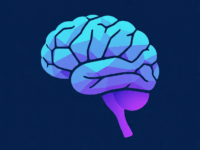
ChatGPT Success Stories: Real Businesses, Real Results 📈
Remember when AI chatbots felt clunky and frustrating? Fast forward to today, and ChatGPT has completely changed the game. This isn’t just a fun tool for generating poems or answering obscure trivia; it’s a powerful engine driving real, tangible results for businesses across every sector. From boosting customer satisfaction to slashing content creation times, ChatGPT success stories are emerging daily, proving its immense value in the modern business landscape.
Introduction: The Transformative Power of ChatGPT in Business ✨
In late 2022, OpenAI launched ChatGPT, and it quickly became a global phenomenon, reaching 100 million users within just two months. This rapid adoption wasn’t just about public curiosity; businesses worldwide quickly recognized its potential to revolutionize operations. Today, ChatGPT success stories: real businesses, real results are no longer theoretical. Companies are leveraging this sophisticated AI to streamline workflows, enhance customer interactions, automate content creation, and even accelerate software development. This article will explore compelling examples of how businesses are integrating ChatGPT to achieve significant improvements in efficiency, cost savings, and overall productivity. Get ready to see how this AI is making a real difference in the competitive business world.
Background and Context: Why ChatGPT Became an Instant Business Asset
Before ChatGPT, many businesses relied on basic chatbots with limited conversational abilities, often leading to frustrating customer experiences. The underlying technology of ChatGPT, particularly the advancements in large language models (LLMs) like GPT-3 and GPT-4, allowed for a massive leap in natural language understanding and generation. This meant AI could now engage in human-like conversations, understand complex queries, and produce coherent, contextually relevant text.
Businesses quickly realized that this wasn’t just a step up; it was a game-changer. The ability to automate tasks that require nuanced language understanding – like customer support, content drafting, or even coding assistance – suddenly became accessible. The sheer volume of data ChatGPT was trained on (billions of text and code snippets) gave it an unprecedented breadth of knowledge, making it a versatile tool. Businesses began experimenting with its capabilities, first for simple tasks, then scaling up to more complex integrations. The driver was clear: how to use this powerful AI to enhance efficiency, reduce operational costs, and deliver better experiences to customers and employees. The widespread adoption and the resulting ChatGPT success stories underscore its role as a pivotal technology for businesses aiming to stay competitive and innovative.
Detailed Comparison: How Businesses Are Winning with ChatGPT
Let’s look at specific examples of companies and sectors achieving remarkable results by integrating ChatGPT.
| Company/Sector | ChatGPT Application | Real Results & Impact |
| Octopus Energy | Customer Service Automation | Handles 44% of customer inquiries, increasing customer satisfaction. Reduced support agent workload, freeing them for complex issues. |
| Duolingo | Personalized Language Learning | Powers “Duolingo Max” for personalized explanations and role-playing with AI personas. Enhances engagement and learning outcomes for users. |
| Expedia | Travel Planning | Integrates conversational AI for intuitive trip planning (e.g., creating smart hotel/attraction lists). Simplifies user experience, making planning feel like chatting with a travel agent. |
| Freshworks | Software Development | Assists developers in generating and debugging code. Reduced software development time significantly (from 10 weeks to less than a week for some tasks). |
| Snap Inc. (Snapchat) | User Engagement / Virtual Assistant | “My AI” chatbot provides recommendations, entertainment, and helps with daily tasks (e.g., planning trips, choosing gifts). Increases user stickiness and engagement on the platform. |
| Salesforce | CRM & Sales Automation | Improves CRM tools by providing smarter data insights and automating customer interactions. Enhances decision-making and efficiency for sales and marketing teams. |
| Brainly (EdTech Platform) | Homework Assistance | Uses AI (including GPT models) to provide instant answers to photographed questions. Achieved 70% student satisfaction and 6x engagement boost for photo queries. |
| A Cosmetics Retailer (CHI Software Client) | Personalized Product Recommendations | Developed an AI mobile app that analyzes selfies and user needs to recommend products. Reported increased sales, positive client feedback, and optimized inventory management. |
| Content Marketing Agencies | Content Ideation & Drafting | Used for brainstorming, writing first drafts of blog posts, social media copy, and ad creatives. Saved an average of 11.4 hours per week on content tasks, speeding up production. |
These diverse examples showcase ChatGPT’s versatility. It’s not just about automating conversations; it’s about fundamentally rethinking processes in customer service, product development, marketing, and even core business intelligence.
Key Features / Benefits of Integrating ChatGPT for Businesses
The widespread adoption of ChatGPT in business stems from its powerful features, which translate into significant benefits:
- Enhanced Customer Service & Support: ChatGPT can handle a massive volume of customer queries 24/7, providing instant and accurate responses to FAQs, troubleshooting common issues, and even offering personalized recommendations. This leads to higher customer satisfaction, reduced wait times, and significantly lowers operational costs by freeing up human agents for more complex tasks.
- Accelerated Content Creation & Marketing: From generating blog post ideas and drafting articles to crafting compelling social media captions, ad copy, and email sequences, ChatGPT can dramatically speed up content production. This allows businesses to maintain a consistent online presence, create targeted marketing materials, and improve SEO performance with ease.
- Streamlined Operations & Efficiency: ChatGPT can automate various administrative and repetitive tasks across departments. This includes summarizing lengthy reports, drafting internal communications, assisting with data entry, and optimizing scheduling. By offloading these time-consuming duties, employees can focus on more strategic and value-added activities.
- Personalized Customer Experiences: By analyzing customer data and past interactions, ChatGPT can provide highly personalized product recommendations, tailored offers, and customized support. This deep level of personalization fosters stronger customer relationships, increases engagement, and drives sales.
- Boosted Software Development & Coding: Developers are using ChatGPT as a powerful assistant for generating code snippets, debugging errors, refactoring code, and even writing documentation. This significantly accelerates the development lifecycle, improves code quality, and allows engineering teams to be more productive.
- Improved Market Research & Insights: ChatGPT can process and analyze vast amounts of text-based data from market trends, customer feedback, and competitor analysis. This helps businesses gain quick insights, identify emerging opportunities, and make data-driven decisions more effectively.
- Scalability: ChatGPT’s API allows businesses to scale their AI capabilities without proportionate increases in human capital. Whether it’s handling a sudden surge in customer inquiries or generating content for new product lines, AI can adapt to growing demands.
Pros and Cons of Using ChatGPT in Business
While the benefits are clear, adopting ChatGPT in business also comes with its own set of considerations.
Pros:
- Cost Savings: Automating tasks like customer support, content generation, and data processing can lead to significant reductions in operational expenses and labor costs.
- 24/7 Availability: AI chatbots powered by ChatGPT can provide continuous support and service, improving customer satisfaction and global reach.
- Increased Productivity: By offloading repetitive tasks, employees can focus on higher-value, more creative, and strategic work, boosting overall team productivity.
- Enhanced Personalization: ChatGPT’s ability to understand context and generate tailored responses allows for highly personalized customer interactions and marketing efforts.
- Faster Turnaround Times: Content generation, code drafting, and information retrieval can be completed in minutes rather than hours or days.
- Scalability: Easily scales to handle fluctuating workloads and growing business demands without needing to hire proportionally more staff.
- Data-Driven Insights: Can process and summarize vast datasets to provide actionable insights for decision-making.
Cons:
- Accuracy and “Hallucinations”: ChatGPT can sometimes generate incorrect, nonsensical, or biased information (known as “hallucinations”), requiring human oversight and fact-checking, especially for critical applications.
- Data Privacy and Security: Feeding sensitive business or customer data into public ChatGPT models raises significant privacy and security concerns. Businesses must use secure API integrations or enterprise-grade solutions.
- Lack of Human Empathy/Nuance: While advanced, ChatGPT lacks genuine human empathy, intuition, and the ability to handle highly sensitive or emotionally charged customer interactions effectively.
- Integration Complexity: Implementing ChatGPT into existing business systems can require technical expertise and significant development efforts.
- Ethical Considerations: Concerns about job displacement, the spread of misinformation, and potential biases embedded in training data require careful ethical governance.
- Over-reliance Risk: Over-dependence on AI without human oversight can lead to a decline in critical thinking skills among employees and a loss of brand voice if content isn’t properly edited.
- Contextual Limitations: While good, it may struggle with highly niche, complex, or rapidly evolving internal business contexts unless specifically fine-tuned with proprietary data.
Use Cases / Who Should Use It
ChatGPT’s versatility means it can benefit a wide array of business functions and industries:
- Customer Service Departments: Ideal for automating FAQs, first-line support, personalized responses, and lead qualification for e-commerce, telecommunications, and tech support.
- Marketing & Sales Teams: Perfect for generating campaign ideas, drafting ad copy, creating email sequences, personalizing sales pitches, and managing social media content across all industries.
- Content Creation & Publishing Businesses: Essential for brainstorming blog topics, writing article drafts, summarizing long-form content, and creating diverse content formats for media companies, bloggers, and marketing agencies.
- Software Development Teams: Highly useful for developers looking for coding assistance, debugging, code review, and generating documentation in tech companies and IT departments.
- Human Resources (HR): Can assist with drafting job descriptions, creating onboarding materials, answering employee FAQs about policies, and even generating personalized training content.
- Education Technology (EdTech) Platforms: Valuable for creating personalized learning paths, providing instant homework help, and generating adaptive quizzes, benefiting online learning platforms and academic institutions.
- Legal & Compliance: Useful for summarizing legal documents, drafting basic contracts, and answering compliance-related questions, though always requiring human legal review.
- Small Businesses & Startups: Can democratize access to advanced capabilities, allowing smaller teams to punch above their weight in marketing, customer service, and content production without massive overheads.
In short, any business looking to enhance efficiency, improve customer engagement, and accelerate content or code generation should explore integrating ChatGPT.
FAQs about ChatGPT Business Success
Q1: How quickly can businesses see results after implementing ChatGPT?
A1: Businesses can often see immediate results for tasks like customer service automation or content ideation. For deeper integrations, such as fine-tuning ChatGPT on proprietary data or building custom applications, the full impact might take a few weeks to months, but preliminary benefits often appear quickly.
Q2: Is ChatGPT secure enough for sensitive business data?
A2: While public ChatGPT models (like the free version) aren’t suitable for sensitive data, OpenAI offers API access and enterprise-level solutions with enhanced data privacy and security features. Many businesses integrate ChatGPT’s underlying models (like GPT-4) via their own secure cloud environments or private instances to ensure data confidentiality.
Q3: Can ChatGPT fully replace human jobs in businesses?
A3: Generally, no. ChatGPT is an augmentation tool, not a complete replacement. It automates repetitive and time-consuming tasks, freeing human employees to focus on strategic thinking, complex problem-solving, creative work, and tasks requiring genuine human empathy and judgment. It changes job roles more than eliminating them.
Q4: What’s the difference between using the free ChatGPT and an enterprise solution?
A4: The free ChatGPT is a public interface, suitable for individual use and basic experimentation. Enterprise solutions or API access offer greater control over data privacy, higher usage limits, access to more advanced models (like GPT-4), consistency, better performance, and the ability to integrate AI directly into existing business applications and workflows.
Q5: How do businesses ensure the content generated by ChatGPT is unique and accurate?
A5: Businesses should use ChatGPT as a drafting and ideation tool, not a final content generator. It’s crucial to have human editors review, fact-check, and refine the output to ensure accuracy, originality, maintain brand voice, and avoid “AI generic” sounding content. Human oversight is key for quality and authenticity.
Conclusion: The ChatGPT Revolution is Here to Stay
The proliferation of ChatGPT success stories across diverse industries unequivocally demonstrates its profound impact on business operations. From revolutionizing customer support and supercharging content creation to accelerating software development and enabling personalized marketing, ChatGPT is proving to be an indispensable asset. It empowers businesses to achieve unprecedented levels of efficiency, reduce costs, and deliver superior customer experiences.
While responsible implementation, addressing data privacy, and ethical considerations remain paramount, the benefits of thoughtfully integrating ChatGPT are clear and compelling. It’s not just about adopting a new tool; it’s about embracing a fundamental shift in how work gets done, enabling human talent to focus on innovation and strategic growth.
Final Verdict: Embrace the AI Advantage 🚀
For any business aiming for greater agility, efficiency, and customer satisfaction in today’s fast-paced digital economy, leveraging ChatGPT is no longer an option, but a strategic imperative. The real-world results speak for themselves: ChatGPT success stories are a testament to its transformative power. By integrating this powerful AI tool, businesses can unlock significant competitive advantages, streamline operations, and ultimately, drive real, measurable growth. Don’t just observe the AI revolution—become a part of its next big success story.



















Leave a Reply